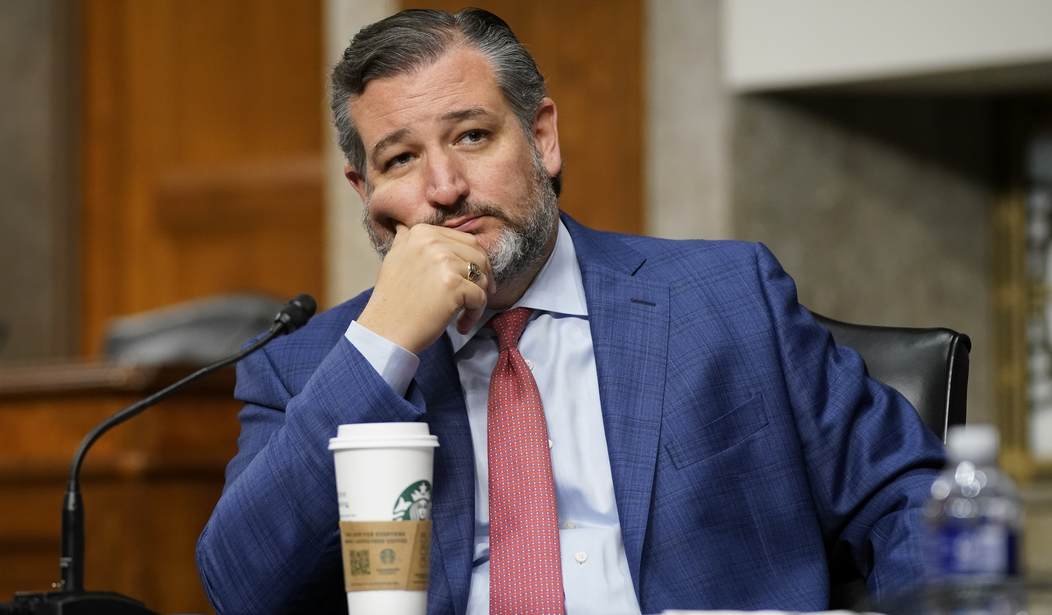The Supreme Court sided with Senator Ted Cruz in a 6-3 decision issued Monday morning in a case brought against him by the Federal Election Commission (FEC) over how loans from candidates can be repaid following an election cycle.
The decision was authored by Chief Justice John Roberts and joined by Justices Thomas, Alito, Gorsuch, Kavanaugh, and Barrett while Justice Elena Kagan wrote the dissent and was joined in the minority by Justices Breyer and Sotomayor.
Sen. Ted Cruz, who clerked on the Supreme Court, has won his case in FEC v. Ted Cruz for Senate. The court ruled 6-3 that a federal campaign-finance law limiting repayment of loans by candidates violated the First Amendment. https://t.co/KRfI1zNhDR
— Jonathan Turley (@JonathanTurley) May 16, 2022
As Roberts explains, the situation at issue — while convoluted by the bureaucratic intricacies of U.S. election law — is fairly straight forward:
In order to jumpstart a fledgling campaign or finish strong in a tight race, candidates for federal office often loan money to their campaign committees. A provision of federal law regulates the repayment of such loans. Among other things, it bars campaigns from using more than $250,000 of funds raised after election day to repay a candidate’s personal loans. This limit on the use of post-election funds increases the risk that candidate loans over $250,000 will not be repaid in full, inhibiting candidates from making such loans in the first place. The question is whether this restriction violates the First Amendment rights of candidates and their campaigns to engage in political speech.
Recommended
The FEC issue arose after Cruz's successful 2018 campaign that was the most expensive U.S. Senate campaign in the nation's history. As the majority opinion explains, Cruz loaned his campaign $260,000 in the final stretch of his race against Vanity Fair cover model Robert Francis O'Rourke. The Cruz campaign began to repay the loan after a 20-day window following the election in which loan repayment of more than than $250,000 is allowed, meaning Cruz didn't receive repayment of the final $10,000 inline with election law. Cruz and his Ted Cruz for Senate Committee then filed action in U.S. District Court, alleging that the law prohibiting loans over a certain amount from being repaid violated the First Amendment.
After hearing the case, the District Court granted summary judgment and held that a loan-repayment limitation is a burden on political speech that lacks adequate justification.
As Chief Justice Roberts writes in the decision affirming the D.C. District Court's judgment, "By restricting the sources of funds that campaigns may use to repay candidate loans, Section 304 increases the risk that such loans will not be repaid. That in turn inhibits candidates from loaning money to their campaigns in the first place, burdening core speech." Roberts further notes that "This Court has recognized only one permissible ground for restricting political speech: the prevention of “quid pro quo” corruption or its appearance." The government's evidence to support its case, Roberts states, "concerns the sort of 'corruption,' loosely conceived, that we have repeatedly explained is not legitimately regulated under the First Amendment."

























Join the conversation as a VIP Member